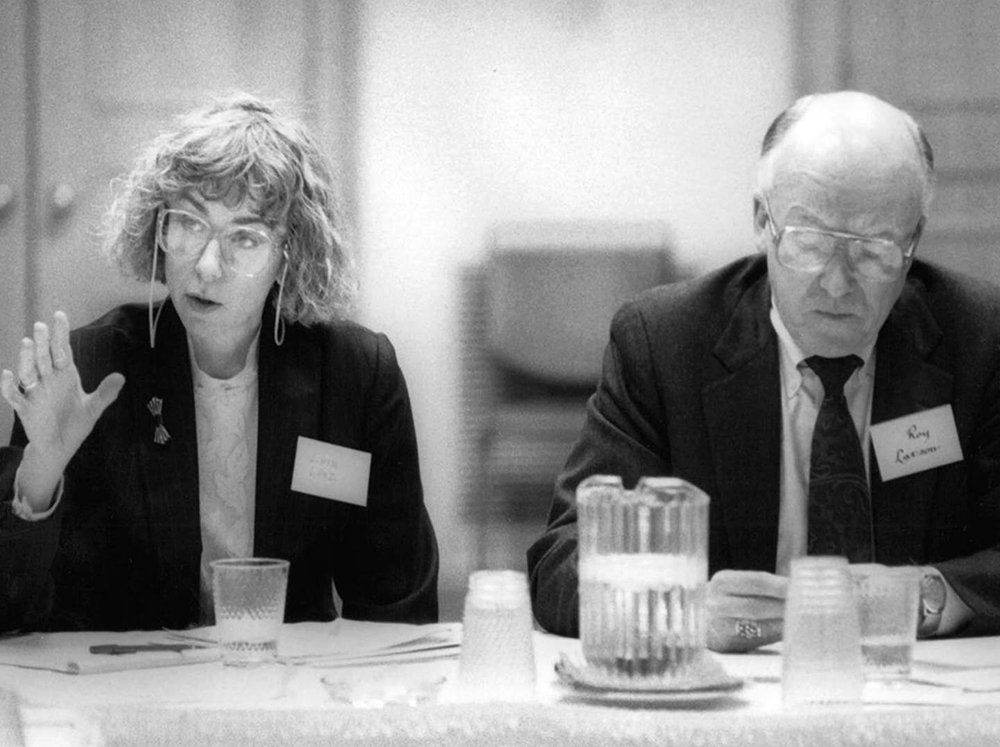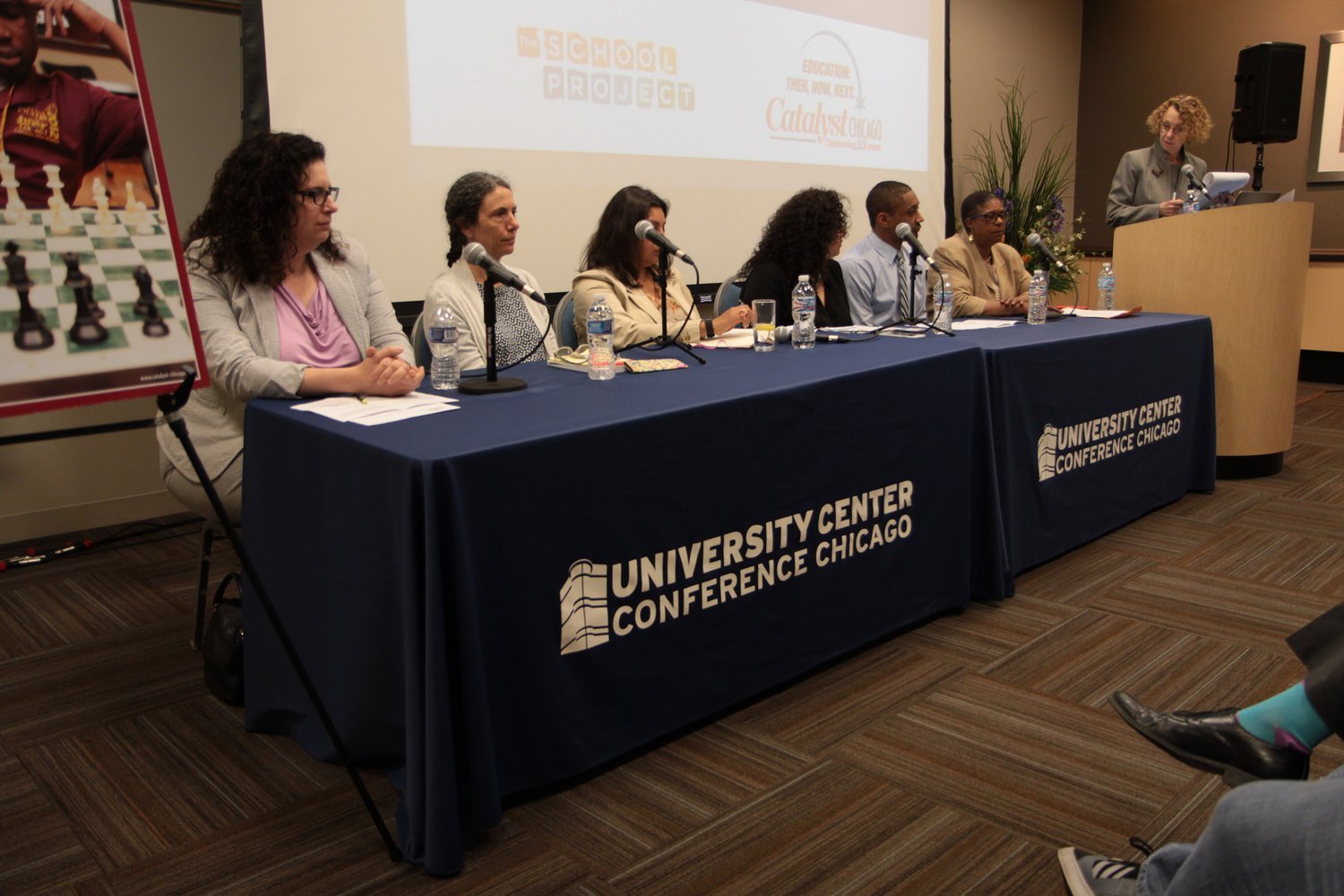Linda Lenz: A Pioneer in Journalism
On April 28, 2023, the city of Chicago lost one of its most influential voices in education reform, Linda Lenz. Lenz may not be a household name, but her work resonates deeply in Chicago, and her impact on education and social reform cannot be overstated. As the visionary behind Catalyst, a magazine specializing in education news and analysis, Lenz emerged as a formidable advocate for education reform and accountability. However, her influence extends past the pages of Catalyst, as she played pivotal roles in organizations like Community Renewal Society and The Chicago Reporter.
Lenz began her career as a young journalist, writing for the Pioneer Press newspaper chain and the Chicago Daily News until it folded in 1978. For the following eleven years, Lenz was a reporter on the education beat at the Chicago Sun-Times.
In the dawn of the 1990s, a moment of profound transformation swept through Chicago's education landscape. Lenz presented her ambitious concept for an education-centric publication to Community Renewal Society, the Chicago Reporter’s parent organization. This seed of an idea would ultimately blossom into Catalyst Chicago, a nonprofit magazine that emerged in the wake of a state law that granted parents and local educators greater agency in shaping their communities.
Lenz said of undertaking, “creating an editorial plan was easy, but I didn’t know how to put it into motion, so I consulted a savvy news source, Anne Hallett, who was then executive director of the Wieboldt Foundation. Anne said: “Go talk to the Community Renewal Society,” which at that time had been publishing The Chicago Reporter, an investigative newsletter focused on race and poverty, for 17 years.”
Linda Lenz and Roy Larson, Editor, Chicago Reporter, at the first Catalyst Editorial Advisory Board meeting. Credit: File photo
At CRS Lenz reunited with Roy Larson, the Reporter’s editor and publisher at the time, who had been the religion editor at the Sun-Times and what Lenz described as her “pod-mate”. Roy melded Lenz’s idea with CRS’s idea for a newsletter for parents, and together they went in search of funding. As it turned out, the MacArthur and Joyce foundations had been looking for a way to track implementation of the Reform Act, and The Chicago Community Trust was interested in assisting parents.
So in February 1990, the first issue of Catalyst rolled off the presses. In its first few years, Catalyst reported on principal selection, testing, school choice, the shortage of bilingual teachers, funding equity and overcrowding in Hispanic communities.
Lenz's prescience was palpable. She recognized the dearth of information available to parents serving on advisory local school councils and sought to bridge this gap. In founding Catalyst, she created not just a publication but a platform for empowerment. This free education newspaper, delivered to parents across the Windy City, aimed to equip them with the knowledge and insights necessary to become active agents of change in their children's education.
Catalyst publisher Linda Lenz addresses the panel at a forum on “The High School Challenge” on May 21, 2015. Photo Credit: Chicago Reporter file photo
Throughout its existence, Catalyst provided valuable budget analysis, giving parents insight into the actual spending in their school. Lenz reported on curriculum innovations and offered statistical analysis on what worked and what didn't. Her dedication to long-form investigative journalism led to groundbreaking stories, including a massive bribery scandal involving a no-bid contract awarded to the former employer of an incoming school superintendent – a scandal that ultimately led to the corruption conviction and imprisonment of then CPS CEO Barbara Byrd-Bennett.
Under Lenz's leadership, Catalyst brought attention to both the successes and failures of school reform efforts in Chicago. The magazine not only informed readers but also played a vital role in shaping public discourse around education reform. Influential figures, such as former Chicago Public Schools (CPS) CEO Paul Vallas, praised Lenz for her unwavering commitment to improving public education for all children.
Arne Duncan, former U.S. Secretary of Education and CEO of CPS, lauded Lenz for her thoughtful reporting and unbiased pursuit of truth, and WBEZ-FM education reporter Sarah Karp, who worked for Lenz at Catalyst, praised her focus on the "nitty-gritty" of education improvement, such as “principal quality, teacher turnover, and transparency.”
Catalyst, published from 1990 until 2016, was one of the first newspapers in the country run by a nonprofit, Community Renewal Society, and Lenz's work earned her numerous awards, including a lifetime achievement award from the Chicago Headline Club and a Studs Terkel Community Media Award. As the news business landscape changed, Lenz's innovative approach paved the way for today's nonprofit investigative journalism and metropolitan newspapers.
Lenz retired in 2015, and it was during the following summer, in 2016, that Catalyst, a publication that had carried the torch of Lenz's vision, released its concluding edition. Now, as we look back on their profound impact, it is heartening to see that Lenz's efforts and the legacy of Catalyst continue to thrive, carefully preserved within the nurturing embrace of The Chicago Reporter.
For 25 years, Catalyst had explored the complexities with an extremely talented and committed staff: former editors Veronica Anderson and Lorraine Forte; reporters Melissa Sanchez and Kalyn Belsha, and presentation editor Christine Wachter; former reporters Liz Duffrin, Rebecca Harris, Sarah Karp, Maureen Kelleher, John Myers, Dan Weissmann and Debra Williams; and former support staff Victoria Jones, Ericka Moore, Brian Foster and Irasema Salinas Gonzalez.
As we reflect upon the profound life and enduring legacy of Linda Lenz, it becomes essential to grasp the profound influence stemming from her groundbreaking endeavors within the realm of educational journalism. Lenz's resolute commitment to transparency and reform in the public school system of Chicago shall forever serve as a wellspring of inspiration for aspiring journalists and zealous advocates alike. In paying homage to the remarkable Lenz, let us persevere in posing the tough questions, pursuing the truth, and persisting tirelessly to elevate the well-being of our children and communities across our cities.
Chris Groza, Communications Coordinator
This article was originally published by The Chicago Reporter.



